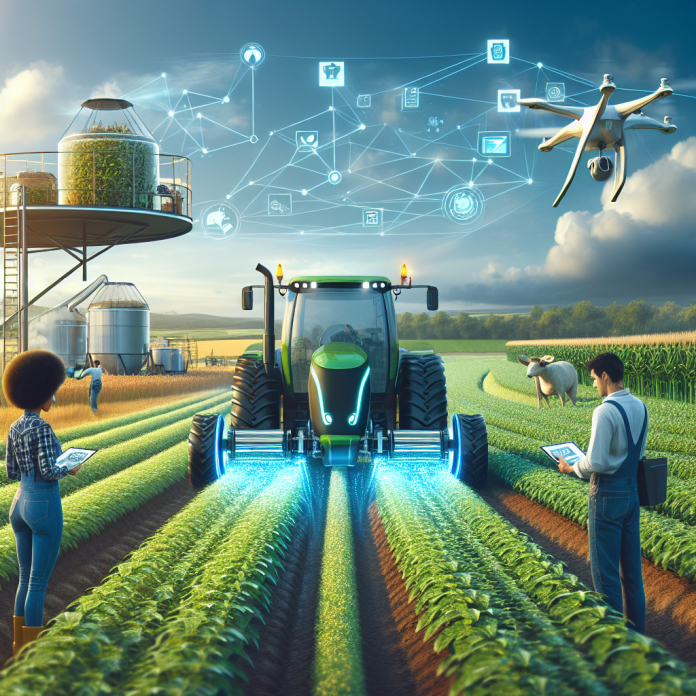Artificial intelligence (AI) has been revolutionizing various industries, and agriculture is no exception. With the global population expected to reach 9.7 billion by 2050, there is increasing pressure on farmers to produce more food with limited resources. AI-powered solutions are helping farmers optimize their yields, reduce waste, and boost efficiency in ways that were unimaginable just a few years ago. In this article, we will delve into the fascinating world of AI in agriculture and explore some of its most exciting applications.
### Precision Farming
Precision farming, also known as precision agriculture, is a farming management concept that uses satellite imagery, drones, sensors, and AI to optimize crop yields and reduce input waste. By collecting and analyzing data on factors such as soil moisture levels, nutrient content, and crop health, farmers can make informed decisions on when to plant, fertilize, and harvest their crops.
One of the key benefits of precision farming is the ability to apply inputs such as water, fertilizer, and pesticides only where and when they are needed. This not only reduces costs for farmers but also minimizes the environmental impact of agriculture by reducing runoff and pollution. Companies like John Deere and Monsanto are investing heavily in AI-powered solutions for precision farming, with promising results.
### Crop Monitoring
AI is also being used to monitor crop health and detect issues such as pests and diseases early on. Drones equipped with high-resolution cameras can fly over fields and capture images that are then analyzed by AI algorithms to identify areas of concern. By spotting problems early, farmers can take corrective action before they escalate, leading to higher yields and healthier crops.
For example, the startup Blue River Technology has developed a robotic weeding system that uses computer vision and machine learning to distinguish between crops and weeds. This allows farmers to target weeds with precision, reducing the need for herbicides and manual labor. Similar solutions are being developed for pest detection and disease monitoring, promising a more sustainable approach to crop protection.
### Livestock Management
AI is not just transforming crop production but also livestock management. By using sensors and wearable devices, farmers can monitor the health and behavior of their animals in real-time. AI algorithms can analyze this data to detect signs of illness, stress, or estrus, allowing farmers to provide timely care and intervention.
For example, the company Vital Herd has developed a smart ear tag for cattle that monitors their temperature, activity levels, and rumination patterns. By analyzing this data, farmers can detect when cows are in heat or sick, improving reproduction rates and overall herd health. Similar solutions are being developed for other livestock species, showing the potential of AI in improving animal welfare and farm productivity.
### Market Prediction
AI is also being used to predict market trends and prices, helping farmers make better decisions on when to sell their produce. By analyzing historical data, weather patterns, and geopolitical events, AI algorithms can forecast supply and demand dynamics in agricultural markets. This allows farmers to time their sales for maximum profit and minimize the risk of price fluctuations.
For example, the company Granular offers a platform that uses AI to analyze farm data and provide insights on market trends. By integrating this information with their own production data, farmers can make more informed decisions on crop selection and pricing strategies. This not only helps farmers maximize their profits but also contributes to a more stable and efficient agricultural market.
### Conclusion
In conclusion, AI is revolutionizing agriculture in ways that were previously unimaginable. From precision farming to crop monitoring, livestock management, and market prediction, AI-powered solutions are helping farmers optimize their yields, reduce waste, and improve efficiency. By harnessing the power of AI, farmers can meet the challenges of feeding a growing population while minimizing the environmental impact of agriculture.
As AI continues to advance, we can expect even greater innovations in the field of agriculture. With the potential to transform the way we produce and distribute food, AI promises a more sustainable and efficient future for farming. By embracing these technologies and investing in their development, farmers can secure a brighter and more prosperous future for themselves and for generations to come.

